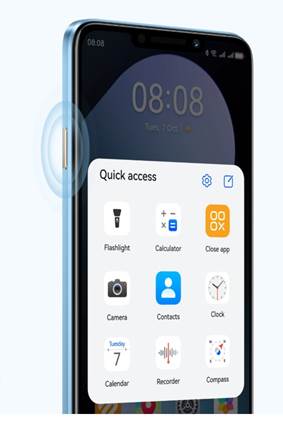Smartphones
are essential tools in everyday life, offering a wide range of apps for
productivity, entertainment, and communication. However, managing app downloads
effectively can become a challenge as the number of apps grows. Over time,
users can accumulate unnecessary apps, leading to cluttered home screens,
reduced storage space, and slower performance. Efficiently managing your app
downloads helps keep your device organized, ensures better performance, and
improves your overall user experience. In this blog, we'll explore practical
strategies for managing app downloads, organizing apps, and following best
practices to ensure that your smartphone remains optimized.

Why App Management
is Important
Efficient
app management is crucial for maintaining the performance and organization of
your smartphone. Overloading your device with unnecessary apps can lead to
clutter, which may make it harder to find the apps you need quickly.
Additionally, unnecessary apps take up valuable storage space and can slow down
your phone's speed. Proper app management also ensures better battery life and
system functionality, as outdated or unused apps may consume resources in the
background. Regularly organizing and managing app downloads can help you
maintain a smooth and responsive smartphone experience, keeping your device in
top shape.
How to Organize
Your App Downloads
Removing
Unnecessary Apps Regularly
Removing
unnecessary apps is an essential practice for keeping your smartphone's storage
free and organized. Unused apps accumulate over time, taking up valuable
storage space and possibly slowing down the device. Set aside time to regularly
review your apps and uninstall those you no longer use. This is particularly
important for apps that you downloaded impulsively or for a one-time purpose.
By removing them, you not only free up storage but also improve your device's
speed and performance. Uninstalling unused apps ensures that your smartphone
remains efficient, and you're left with only the apps that serve a useful
purpose.
Using Folders and
Widgets for Quick Access
Folders
and widgets are powerful tools for enhancing your app organization. Grouping
apps into folders, such as "Work,” "Entertainment," or
"Fitness," helps keep your home screen tidy while ensuring easy
access to frequently used apps. You can also take advantage of widgets to
display essential information directly on your home screen, without the need to
open the app. This quick access to relevant information can save time and
improve the overall efficiency of using your smartphone. By implementing
folders and widgets, you can streamline your device's interface, making it more
functional and user-friendly.

What Are the Best
Practices for Downloading Apps?
Downloading Only
Trusted and Necessary Apps
When
downloading apps, always ensure that they are from trusted sources, such as the
HUAWEI AppGallery. Avoid downloading apps from third-party sites, as they may
contain harmful malware or viruses that can compromise your privacy and device
security. Also, be selective in downloading apps—only install those that meet
your needs. This reduces the risk of cluttering your device with unnecessary
apps that may ultimately slow down its performance. By downloading only trusted
and essential apps, you can safeguard your phone and enjoy a more streamlined,
secure mobile experience.
Managing App
Permissions Efficiently
Managing
app permissions is a crucial part of maintaining your privacy and optimizing
your device. Many apps request permissions to access your camera, microphone,
location, and contacts. However, not all apps require these permissions to
function. Regularly review the permissions granted to each app and disable
those that are unnecessary. By doing this, you reduce the risk of potential
security breaches and ensure that your phone is running as efficiently as
possible. Properly managing app permissions not only helps protect your
personal information but also limits resource consumption, which can improve
your phone's performance.
Checking for App
Updates Regularly
Regularly
checking for app updates is essential to ensure that your apps function
properly and remain secure. Developers often release updates that improve
performance, fix bugs, and add new features. Keeping apps up-to-date helps your
device run smoothly by eliminating potential vulnerabilities. Most smartphones
allow you to set apps to update automatically, but it's still a good practice
to manually check for updates every so often. Additionally, it's important to
know how to use Netflix on huawei devices, as
updates can improve compatibility and performance. Updating your apps also
ensures compatibility with your device's operating system, preventing any
performance issues that may arise from using outdated versions. Keeping apps
updated is a simple yet effective way to maintain your smartphone's efficiency.
Conclusion
Managing
your smartphone's app downloads efficiently is vital for maintaining an
organized, high-performing device. By categorizing apps, removing unnecessary
ones, and utilizing folders and widgets, you can streamline your device's
interface and improve navigation. Furthermore, following best practices such as
downloading only trusted apps, managing permissions, and keeping apps updated
ensures security and optimal performance. By incorporating these strategies
into your smartphone usage routine, you'll keep your device running smoothly,
avoid clutter, and have a more efficient, enjoyable experience with your apps.
A well-maintained phone is a phone that performs at its best.
